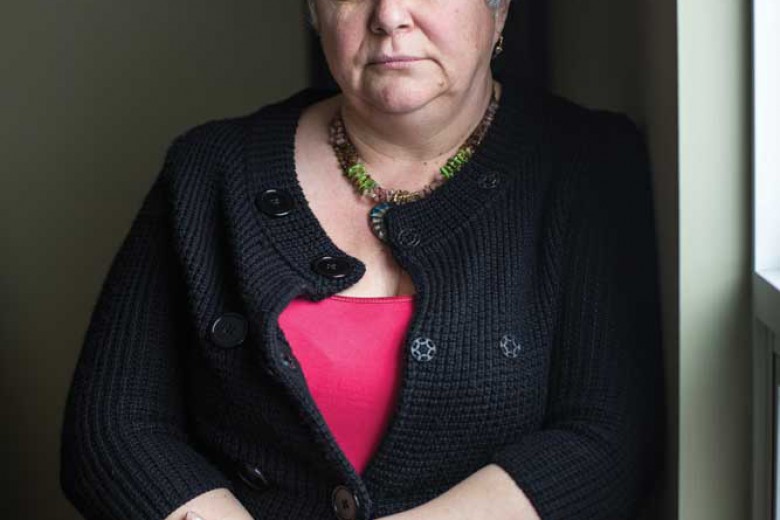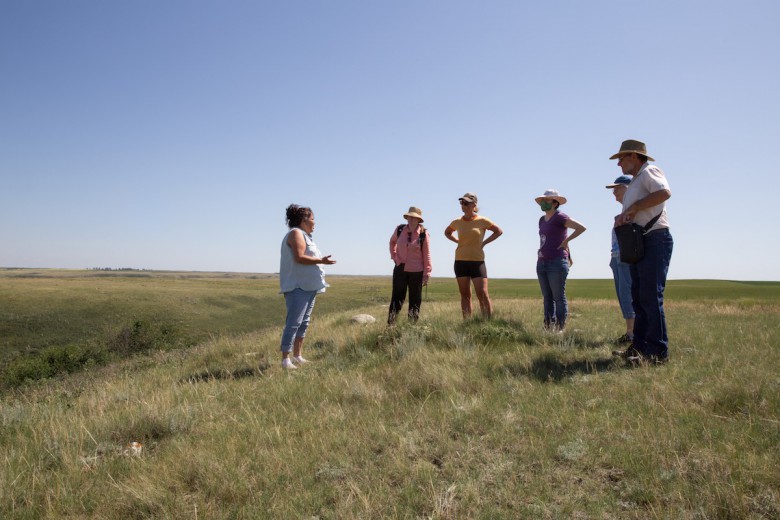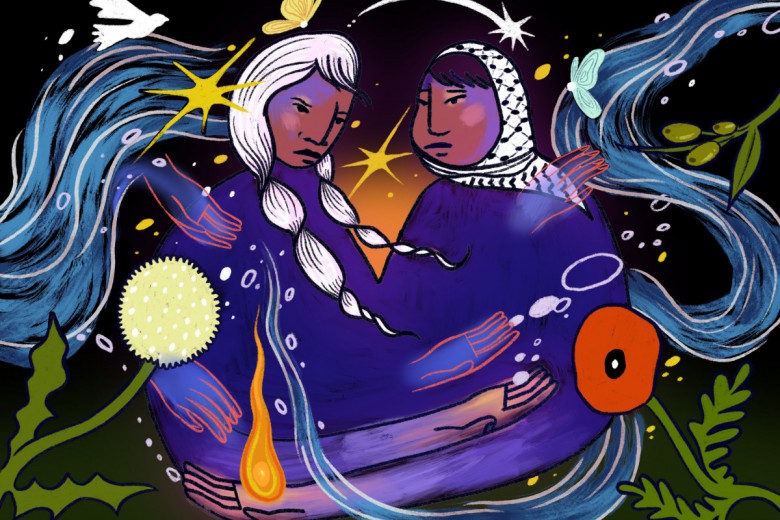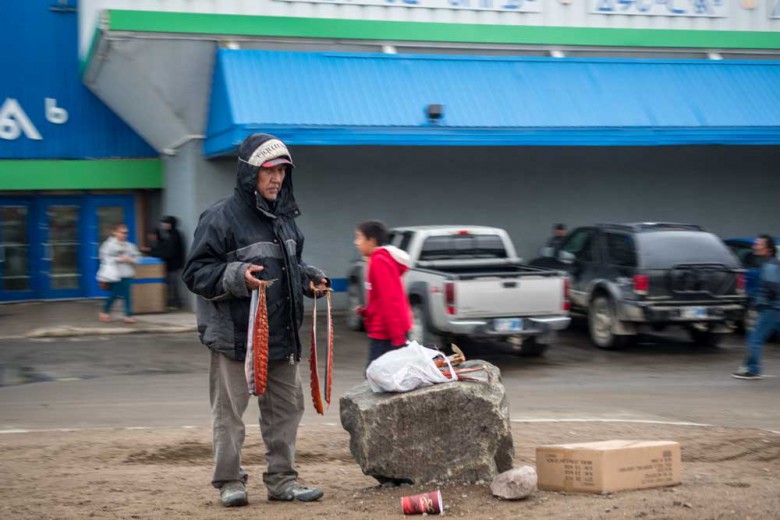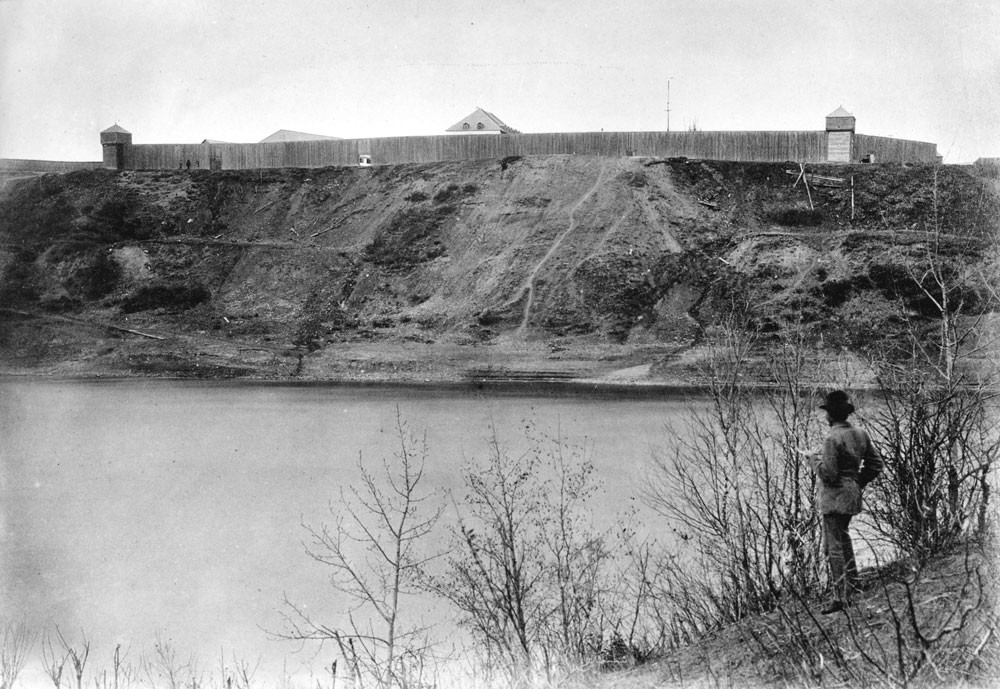
The winter before I joined Briarpatch I worked at a daytime drop-in centre for the homeless in Edmonton. Most of the community who used the centre were Indigenous men who slept outside throughout the winter, generally in camps pitched in the wide valley of the North Saskatchewan River that winds beneath the provincial legislature, itself built beside the wooden palisades of the Hudson’s Bay Company trading post that gave Edmonton its name.
For the men I got to know while working at the centre, there was more dignity in braving the extreme cold than in entering the city’s shelters. Their circumstances as Indigenous people, homeless on the traditional lands of the Plains Cree and Blackfoot, in the thick of Alberta’s bitumen boom, offer a window into Canada’s colonial present.
One of the most gentle and widely loved of the regulars at the drop-in centre, an Inuit guy we’ll call Simon, loved to play the old upright piano that stood next to the small library of National Geographic magazines. As friends chatted over bowls of instant noodles and played cards while waiting for their clothes to cycle through the washer and dryer, Simon transformed the room with the piano, creating a world in sound that held both the pain and the courage, the dispossession and the resilience, of their lives.
One December evening Simon came in particularly distraught, crying. After staff’s unsuccessful attempts to console him, he went outside to the busy street and tried to kill himself by jumping in front of traffic. A staff person pulled him off the road and sat with him, waiting for the police to arrive. When two officers showed up to take Simon away, he resisted – fought back – as if his life depended on it.
Within the span of 20 minutes Simon had attempted suicide and then defended himself from the armed guards of the status quo, the police, who were called to restore public order and safety.
It was a very Canadian moment, enacting so much of the settler-colonial scene. Untold events like this – countless but rarely broadcast – invite questions. What is the role of settler Canadians in a relentless emergency that has become – and has long been – everyday life for so many Native people? What is our role in a situation where front-line services reinforce experiences of dispossession and trauma, where scores of Indigenous communities live without potable water or decent shelter, and where Indigenous women face unconscionable levels of abuse, violence, and humiliation?
Few settler Canadians have purposefully built the structures of dispossession and incremental violence that generate and maintain these realities. But to the extent that our health, economic, educational, and cultural realities eclipse those of Native people, we have nonetheless benefited.
While we should be thankful for those who do, it is not the responsibility of Indigenous people to educate Canadians about the circumstances of Indigenous oppression. That responsibility rests with us, the non-Natives whose material privilege is rooted in an ongoing colonial relationship we must be able to recognize in order to change. Awakening to this emergency is not a favour to others but instead a step toward a different relationship with these resource-rich lands and their First Peoples.
We are all enriched by the recognition that no one’s potential can be reached so long as that of others is under constant threat.


